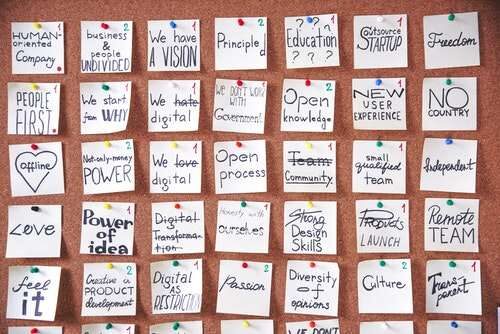Self-respect is the cornerstone of a healthy life, enabling you to set boundaries, cultivate inner strength, and nurture meaningful relationships. When you learn to improve self-respect, you invest in your emotional and mental well-being.
In today’s fast-paced world, it’s easy to lose sight of your value. This article explores six transformative steps to improve self-respect and build a life centered on self-empowerment and authenticity.
Table of Contents
1. Acknowledge Your Worth
Understanding your intrinsic value is the first step toward improving self-respect. It’s about recognizing that you are more than your achievements, mistakes, or external validations. Start by creating a personal affirmation routine. Every morning, remind yourself of your strengths and the qualities that make you unique.
Actionable Plan:
- Write Down Your Strengths: Maintain a journal where you list your achievements, positive traits, and moments of resilience.
- Daily Affirmations: Stand in front of the mirror and repeat affirmations such as, “I am worthy,” “I deserve respect,” and “My value is inherent.”
- Reflect on Past Successes: Look back on challenges you’ve overcome. This reflection reinforces your ability to succeed and stand strong.
By embracing your worth, you set the stage for a more confident and respectful life. The process of acknowledging your value gradually changes the narrative from self-doubt to self-empowerment.
2. Set Clear Boundaries
Healthy boundaries are a manifestation of self-respect. They enable you to protect your energy, focus on what truly matters, and maintain balanced relationships. When you establish limits, you send a message that you value your time, energy, and emotional well-being.
Actionable Plan:
- Identify Your Limits: Consider what behaviors, environments, or relationships drain your energy and compromise your self-worth.
- Communicate Clearly: Once you recognize your boundaries, clearly articulate them to those around you. Whether it’s a colleague, friend, or family member, honest communication is key.
- Practice Saying No: Empower yourself by confidently saying no when necessary. Remind yourself that declining requests that compromise your self-respect is a positive, self-affirming act.
Creating boundaries is not about pushing people away; it’s about fostering healthy relationships that support your well-being.
3. Prioritize Self-Care
Self-care is not a luxury—it’s a necessity. Investing time in activities that replenish your mind, body, and soul helps improve self-respect. Prioritizing self-care means understanding that you deserve the same care and attention you offer others.
Actionable Plan:
- Develop a Routine: Dedicate time each day for activities that relax and rejuvenate you, such as meditation, exercise, or reading.
- Invest in Your Health: Pay attention to your physical health by eating nutritious foods, getting regular sleep, and engaging in physical activities you enjoy.
- Schedule “Me-Time”: Make time for hobbies or pursuits that bring you joy and peace. This can be anything from painting to gardening or simply enjoying a quiet cup of tea.
A strong self-care routine reinforces the idea that your well-being matters. Over time, these practices cultivate a sense of self-respect that permeates all aspects of your life.
4. Cultivate Positive Relationships
The people you surround yourself with play a crucial role in how you view yourself. When you commit to improving self-respect, it’s essential to foster relationships that uplift and inspire you. Negative or toxic influences can erode your confidence, so focus on cultivating positive connections.
Actionable Plan:
- Evaluate Your Circle: Reflect on the relationships in your life. Identify those that are supportive and those that drain your energy.
- Seek Out Mentors: Build connections with people who inspire you. Whether through professional networks or community groups, mentors can provide valuable guidance and encouragement.
- Engage in Mutual Respect: Practice active listening, empathy, and genuine interest when interacting with others. Cultivate an environment where mutual respect is the norm.
Surrounding yourself with positivity not only enhances self-respect but also creates a supportive community that celebrates your growth and achievements.
5. Embrace Self-Reflection
Regular self-reflection is a powerful tool for personal growth. By taking the time to evaluate your thoughts, emotions, and actions, you develop a deeper understanding of yourself. This awareness is vital for improving self-respect and making decisions that align with your core values.
Actionable Plan:
- Maintain a Journal: Writing down your thoughts and feelings can help you process experiences and learn from them. Consider questions like, “What did I do well today?” or “How did I handle a challenging situation?”
- Meditate Regularly: Meditation not only clears your mind but also fosters self-awareness. Even a few minutes a day can lead to significant insights.
- Set Personal Goals: Reflect on what self-respect means to you and set clear, achievable goals. Regularly assess your progress and adjust your actions to stay aligned with your values.
Self-reflection paves the way for continuous personal development. It’s a journey of recognizing your strengths, identifying areas for improvement, and celebrating your evolution.
6. Commit to Personal Growth
Improving self-respect is an ongoing process that involves embracing change and committing to lifelong learning. Personal growth empowers you to challenge your limitations, learn new skills, and step outside of your comfort zone.
Actionable Plan:
- Enroll in Courses: Whether online or in-person, education broadens your perspective and boosts self-confidence. Choose subjects that interest you or align with your career goals.
- Develop New Hobbies: Engage in activities that push your boundaries and ignite your passion. This not only enriches your life but also reinforces your self-worth.
- Track Your Progress: Celebrate small wins and acknowledge your efforts. Personal growth is a series of incremental steps that, over time, lead to substantial improvement.
By embracing personal growth, you create a foundation of self-respect that continually evolves. Each new skill learned and challenge overcome reaffirms your ability to thrive.
Conclusion
Improving self-respect is a transformative journey that begins with acknowledging your worth and continues through setting boundaries, prioritizing self-care, cultivating positive relationships, engaging in self-reflection, and committing to personal growth.
These six transformative steps provide a roadmap to not only improve self-respect but also to create a more fulfilling, empowered life.
As you begin to implement these actionable plans, you will notice a profound shift in how you perceive yourself and interact with the world. Remember, self-respect is not a destination—it’s an ongoing process of growth and self-affirmation.
Top 20 FAQs
Q1: What does it mean to improve self-respect?
A1: It means recognizing your intrinsic worth and treating yourself with the care, kindness, and boundaries you deserve.
Q2: Why is acknowledging your worth important?
A2: Acknowledging your worth builds confidence, reinforces your intrinsic value, and lays the foundation for healthier relationships.
Q3: How can I start acknowledging my own worth?
A3: Begin by writing down your strengths, practicing daily affirmations, and reflecting on your past successes.
Q4: What role do boundaries play in self-respect?
A4: Boundaries help protect your time, energy, and emotional well-being, ensuring you maintain balanced relationships.
Q5: How do I set effective boundaries?
A5: Identify what drains your energy, communicate your limits clearly, and practice saying no when necessary.
Q6: Why is self-care essential in improving self-respect?
A6: Self-care ensures that you prioritize your well-being, reinforcing the idea that you deserve time and attention.
Q7: What are some simple self-care activities?
A7: Activities include meditation, exercise, reading, and engaging in hobbies that bring you joy.
Q8: How do positive relationships impact self-respect?
A8: Surrounding yourself with supportive people boosts your confidence and creates a nurturing environment for personal growth.
Q9: What should I do if my current relationships are toxic?
A9: Evaluate your circle, reduce contact with negative influences, and focus on building relationships that offer mutual respect.
Q10: How does self-reflection help improve self-respect?
A10: Self-reflection increases self-awareness, helps you learn from experiences, and guides you in making better life decisions.
Q11: What are some effective self-reflection techniques?
A11: Keeping a journal, meditating regularly, and setting personal goals are excellent ways to practice self-reflection.
Q12: How can I commit to personal growth?
A12: Embrace lifelong learning by taking courses, developing new hobbies, and continuously tracking your progress.
Q13: How do I measure my personal growth?
A13: Measure your progress by celebrating small wins, acknowledging your efforts, and evaluating changes in your confidence and skills.
Q14: Can improving self-respect lead to better relationships?
A14: Yes, when you respect yourself, you are more likely to attract relationships that are healthy and mutually supportive.
Q15: What are daily affirmations and how do they help?
A15: Daily affirmations are positive statements that reinforce your value, boosting self-confidence and setting a positive tone for the day.
Q16: How can I maintain self-respect in challenging situations?
A16: Rely on your boundaries, practice self-care, and remind yourself of your intrinsic worth during tough times.
Q17: What if I struggle to say no?
A17: Practice gradually by setting small boundaries and recognizing that saying no is an act of self-care, not selfishness.
Q18: How does personal growth impact self-respect?
A18: Personal growth builds new skills and confidence, affirming that you are capable and worthy of continual improvement.
Q19: Are there professional resources available for improving self-respect?
A19: Yes, many therapists, life coaches, and online courses focus on self-esteem and personal development.
Q20: What is the first step I should take to improve my self-respect?
A20: Start by acknowledging your inherent worth and making a commitment to daily self-care practices and reflection.
-
10 Superfoods for Healthy Eyes That Boost Your Vision
Let’s be honest — we don’t always treat our eyes the way they deserve. From binge-watching late-night shows to scrolling endlessly through social media, our vision takes a lot. The problem? We often forget how crucial eye health really is… until something starts to go wrong. The good news? You don’t need to wait for…
-
Importance of Taking Risks for Success
Let’s face it—taking risks is scary. Whether it’s quitting a job, starting a business, or even just speaking up in a meeting, the idea of stepping outside what’s familiar can feel downright uncomfortable. But here’s the thing: most people who achieve real success didn’t get there by playing it safe. They took leaps. They bet…
-
What to do After Layoff ? | 7 Steps to Bounce Back Stronger and Smarter
Losing your job is one of those moments that just hits differently. It’s not just about the paycheck—it’s about routine, identity, even pride. One minute you’re gearing up for a busy quarter, and the next, you’re trying to figure out what the heck just happened. If you’re sitting there wondering what to do after layoff,…







